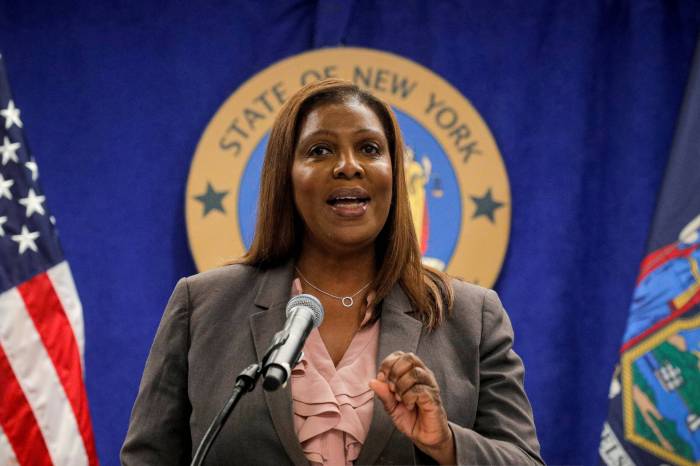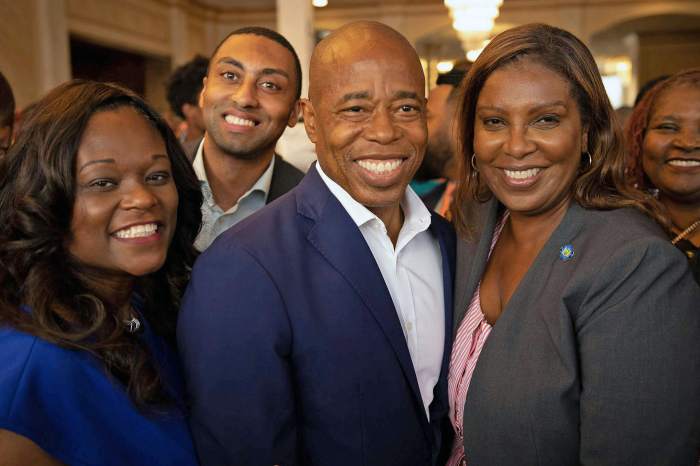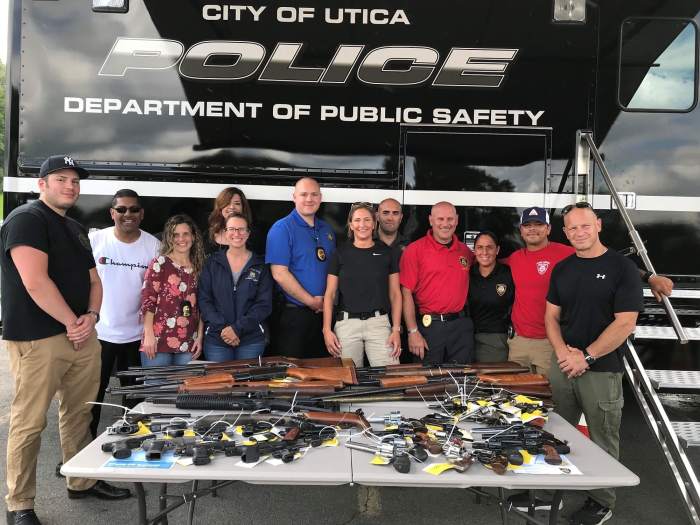New York Attorney General Letitia James on Tuesday took action to defend a federal law that prevents persons under a domestic violence restraining order from accessing guns.
Joining a coalition of 25 attorneys general to file an amicus brief in the United States Supreme Court in the case of United States v. Rahimi, James urged the court to preserve this critical tool meant to protect survivors of domestic abuse.
The case involves Zackey Rahimi, who was under a domestic violence restraining order for assaulting his girlfriend, and was, therefore, barred from possessing guns.
Rahimi was subsequently involved in multiple shootings and then indicted for possession of a firearm while under a domestic violence restraining order.
Rahimi challenged the federal statute and the US Court of Appeals for the Fifth Circuit held that the Second Amendment prohibits disarming persons under orders of protection for domestic violence.
The amicus brief filed by Attorney General James and the coalition of attorneys general urges the Supreme Court to overrule the lower court.
“Keeping guns out of the hands of dangerous domestic abusers is a commonsense way to save lives and protect communities,” said Attorney General James. “Nearly every state in the nation has some form of law barring abusers and people under active restraining orders from accessing guns.
“With these reasonable laws under threat, I will use the full force of my office to protect New York residents and communities from gun violence,” she added.
In the amicus brief, James and the coalition argue that striking down the existing federal law would make it more difficult to protect survivors of domestic abuse.
The coalition notes that studies have shown an abuser is five times more likely to murder his or her intimate partner if a firearm is in the home and that firearms are the leading cause of intimate partner homicides — more so than all other weapons combined.
In the United States, 80 percent of these homicide victims are women, and pregnant women and women of color are disproportionately the targets of intimate partner violence, James said.
The attorneys general also note that, in addition to the federal law, 46 states, the District of Columbia, and multiple territories have laws limiting the ability of those under a domestic violence restraining order to access firearms.
“These statutes reflect the established fact that perpetrators of domestic abuse can be uniquely dangerous,” the coalition says.
The coalition asserts that the lower court ruling could negatively impact these existing laws and therefore make it harder to protect Americans’ lives and safety.
Joining Attorney General James in filing today’s amicus brief are the attorneys general of Arizona, California, Colorado, Connecticut, Delaware, Hawaii, Illinois, Maine, Maryland, Massachusetts, Michigan, Minnesota, Nevada, New Jersey, New Mexico, North Carolina, Oregon, Pennsylvania, Rhode Island, Vermont, Washington, Wisconsin, the District of Columbia, and the Commonwealth of the Northern Mariana Islands.
This amicus brief is part of Attorney General James’ ongoing efforts to address gun violence throughout New York and across the nation.
In May, James sued a gun accessory manufacturer that aided the Buffalo mass shooter.
In April, she joined a multistate amicus brief urging the Supreme Court to hear United States v. Rahimi and overturn the Fifth Circuit’s ruling.
Also in April, she also took action to remove more than 3,000 guns off New York’s streets in a single day through the first-ever statewide gun buyback program, and has removed over 7,000 guns from New York since taking office.
In March, Attorney General James and the New York Drug Enforcement Task Force took down a firearm and drug trafficking operation that illegally sold guns, including ghost guns and assault weapons, in New York City.
The takedown recovered 19 firearms, including 12 ghost guns.
Also in March, James secured a court order banning 10 gun distributors from selling and shipping ghost gun parts into New York.
In December 2022, James and the task force removed 57 illegal firearms, including 51 ghost guns, as part of a 438-count indictment against three individuals.
In June 2022, James sued 10 national gun distributors for bringing ghost gun parts into New York.


























